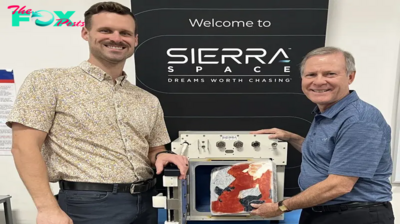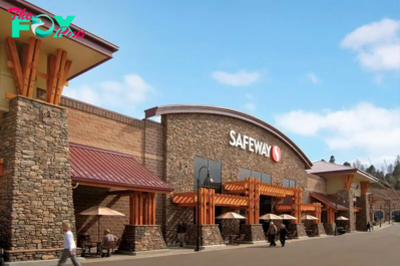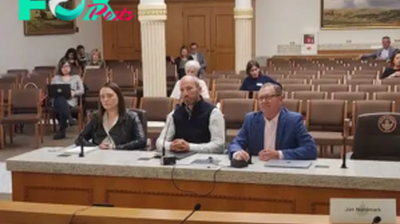Technology
Colorado’s multimillion dollar investment in quantum gets 70-acre campus in Arvada
Two months after winning a $40.5 million federal grant to invest in a quantum computing hub in Colorado, members of a local consortium have acquired a 70-acre property in Arvada, attracted millions more in funding commitments, and, on Monday, put shovels to the ground.
That’s relatively quick in a realm where private industry must rely on public agencies and area universities to make decisions.
“Colorado and the Mountain West are on top not just because of the amazing scenic views but ultimately because of decades of innovation and startups that are right around risk taking and smart policy and startup entrepreneurialism,” Zachary Yerushalmi, CEO of the Elevate Quantum consortium, told a small crowd during the ceremonial groundbreaking. “Entrepreneurship is, of course, no stranger to Gov. Polis, and the support for this effort and wider advanced technology policies of the state going back decades is why we stand here today.”
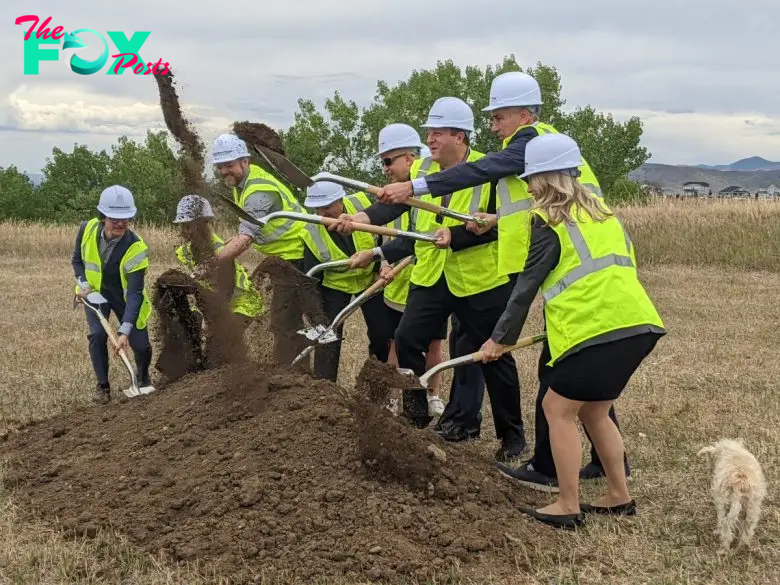
The business park, dubbed the Quantum COmmons, is the next phase of the state’s Tech Hub effort, which became official in October after Elevate Quantum beat out hundreds of other applicants. The U.S. Department of Commerce program stemmed from the CHIPS and Science Act of 2022 to bring tech manufacturing back to the U.S. and spread tech expertise around the country.
But the real plan in the Denver-Boulder corridor is to take all the super brain power spawned during the decadeslong existence of federal labs and schools like the University of Colorado — four Nobel Prize laureates for physics hail from CU — and connect it to the dozens of startups and private companies working to commercialize quantum right now. Another goal is to create tens of thousands of jobs, not all of them requiring an advanced degree.
Get that formula right and the region, as more than one person alluded to, could become another Stanford Research Park, a 1950s partnership between city and industry that became a cornerstone of high tech’s Silicon Valley.
“Quantum gives us a path to end infectious disease. It will cure cancer. It’ll turn back the clock on climate change. The things we know it can do will fundamentally transform civilization,” said Corban Tillemann-Dick, founder of Denver-based Maybell Quantum, which makes super-cold refrigerators to slow atomic motion so quantum computers can effectively operate. “That’s why this place matters. The Quantum COmmons isn’t just these 70 acres. … It’s our Bell Labs, our Stanford Research Park, our Apollo program.”
☀️ READ MORE
What’s Working: How a Colorado program is linking quantum, space and tech companies to a future workforce
Colorado awarded $40.5 million federal quantum technology grant to become worldwide hub
What’s Working: Colorado employers may finally have found enough workers, as job openings flatten
School of Mines becomes developer, landlord
On Monday, though, the Arvada site looked like a neglected, 1970s-style industrial park, with dilapidated asphalt roads and worn-down parking lots. There’s about 60,000 square feet of buildings, including one with labs in need of updating.
The property, just off Highway 72, is covered with wildgrasses and overlooks residential neighborhoods and a railroad track to in the south. It’s hard to miss with a 180-foot-tall landmark on site, according to the property broker. That’s the old lift pipe tower originally used by oil-shale company Tosco in the 1980s to research how to extract oil shale from rocks. But then Tosco left town and while property owners tried to keep it leased to Science and research tenants, the site has been for sale for years.
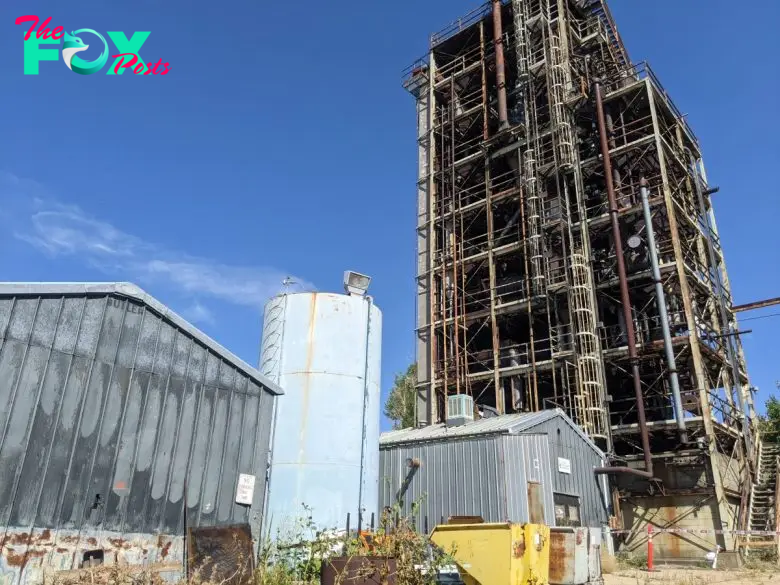
Enter the Colorado School of Mines, a consortium member eager for the advances and opportunities quantum will offer to students.
“We knew that a requirement for any successful proposal was going to be to have a location where companies could get together, advance their technologies, share resources,” said Paul C. Johnson, president of the School of Mines. “That’s where we jumped in and said, ‘how about if we do that for you to make your proposal more competitive?’ They got very excited about it.”
Johnson said that the school had been aware of the site for years but hadn’t found the right use. And then came quantum. He’d kept the board in the loop this year and let them know they may have to approve the purchase fast. The federal award was announced in July. Mines completed the purchase in August.
The school’s commitment is likely to be “in excess of $20 million by the time we’re done in the next 18 months,” Johnson said.
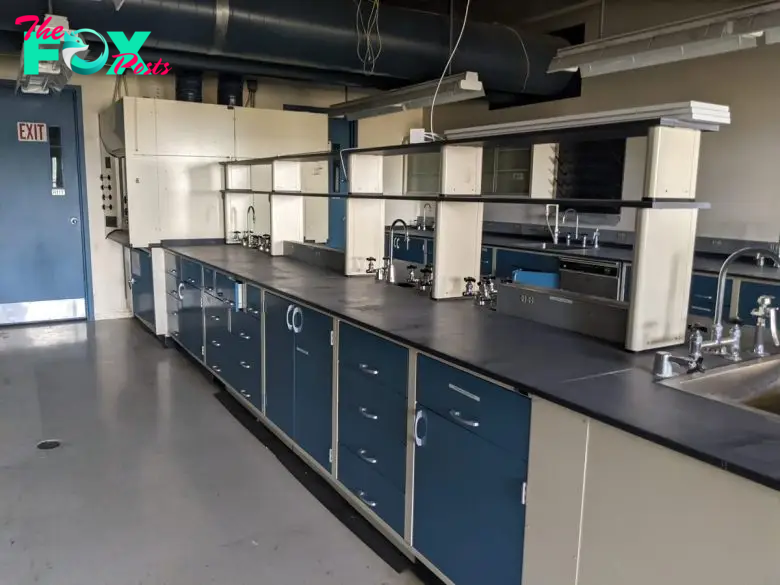
That covers the cost of buying the property for $14 million, fixing up the existing 60,000 square feet of labs and offices (“Maybell’s going to have quantum refrigerators down in the basement that feed the upper floors,” Johnson said) and developing a shared clean-room fabrication facility, which is critical for companies building such sensitive instruments that might get messed up if someone sneezes. It sounds like a coworking space for startups and tech companies that can’t afford to build clean rooms of their own.
Mines is the owner, operator and developer of the property and at some point, it does hope to get some of the investment back. Payback could be in the form of cash, as the property develops and is leased to companies, much like Stanford Research Park.
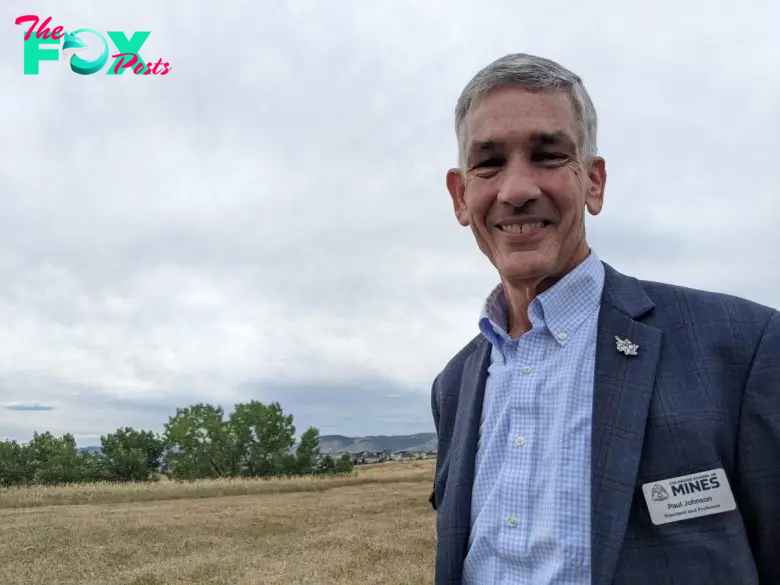
The other return is the opportunity for students.
“Our goal is to make this successful so they continue to get funding and Colorado does become the world’s epicenter of quantum technologies. That’s our first goal,” he said. “But we’ve already had discussions about students having internships with the companies up there and students doing senior design projects. It may not be a formal classroom kind of Education, but we’ve certainly already talked about having students there getting experiential learning opportunities.”
The money behind the quantum project
Of course, the $40.5 million isn’t going to cut it. But everyone knew that from the start. The federal funds weren’t going to be enough. If Elevate Quantum had been thinking that small, there probably wouldn’t be anything to write about today.
The U.S. Economic Development Administration, a bureau of the Department of Commerce that oversaw the Tech Hubs rollout, expected a lot from applicants. It wanted commitments from the entire ecosystem of schools, investors, private businesses and local governments. The federal grant prevented Elevate Quantum from buying property itself, forcing it to work with others to get that done.
-

 Technology4h ago
Technology4h agoThere Is a Solution to AI’s Existential Risk Problem
-

 Technology6h ago
Technology6h agoUS pushes to break up Google, calls for Chrome sell-off in major antitrust move | The Express Tribune
-

 Technology10h ago
Technology10h agoPublic health surveillance, from social media to sewage, spots disease outbreaks early to stop them fast
-

 Technology12h ago
Technology12h agoTikTok, PTA host youth safety summit in Pakistan | The Express Tribune
-

 Technology15h ago
Technology15h agoWhy a Technocracy Fails Young People
-

 Technology1d ago
Technology1d agoTransplanting insulin-making cells to treat Type 1 diabetes is challenging − but stem cells offer a potential improvement
-

 Technology1d ago
Technology1d agoJapan's $26 billion deep sea discovery sparks serious environmental concerns | The Express Tribune
-

 Technology1d ago
Technology1d agoShould I worry about mold growing in my home?




